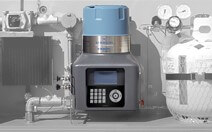Gas chromatographs (GCs) are used to analyze natural gas streams to identify the hydrocarbon components in order to determine the energy content of the gas. Natural gas is typically sold based on the amount of this energy delivered. The quantity of energy delivered is calculated by multiplying the gas volume per unit time by the heating value (BTU) per unit volume.
Some standard applications for GCs include:
- Standard Natural Gas Applications
- Energy Measurement Ranges (C6+ to C9+ Analysis)
- Fiscal Metering and Custody Transfer
- Refineries
- Petrochemical
- Lost and Unaccounted For Gas Measurement Prevention
- Gas Quality Analysis
- Trace Contaminate Monitoring
- Landfill and Biogas
- Hydrocarbon Dew Point Monitoring
- Avoiding Two-Phase Flow Errors
- Fuel Gas Control
- Environmental Monitoring
- NGT, GTL, and LNG Plants
- Cryogenic Gas Plants
 Bonnie will review the requirements and best practices that you’ll need to consider before installing the analyzer. She will explain which options are best for your application, and how to properly install, startup and commission the GC unit in order to gain optimal measurement performance.
Bonnie will review the requirements and best practices that you’ll need to consider before installing the analyzer. She will explain which options are best for your application, and how to properly install, startup and commission the GC unit in order to gain optimal measurement performance.
If you missed the first two webinars Validating the Operation of a Gas Chromatograph and Communicating With Your GC Thru Modbus: RS-232, RS-485 or Ethernet, they are both available for viewing as recordings.
The final two webinars in the series will be in August and October. Here are the specifics:
- Maintaining Your Gas Chromatograph at Optimal Performance Levels—August 11, 2016
- Sample Handling System Considerations for Your Gas Chromatograph—October 20, 2016
We hope you’ll be able to join Bonnie for this webinar and take away some practical tips and ideas for your application.
You can also connect and interact with other analyzer experts in the Analytical group in the Emerson Exchange 365 community.

